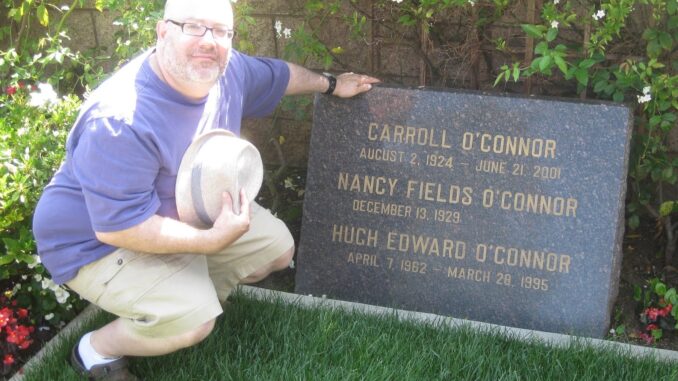
“`html
Carroll O’Connor, the beloved actor best known for his iconic portrayal of Archie Bunker in the groundbreaking television series *All in the Family*, left a lasting impact on American culture. While his gruff demeanor and often prejudiced views provided comedic fodder and social commentary, the actor himself faced personal tragedies that ultimately contributed to his untimely death. The official cause of Carroll O’Connor’s death was complications arising from diabetes, but the underlying stress and grief stemming from his son’s struggle with addiction and subsequent suicide significantly exacerbated his health issues.
The Tragic Loss of Hugh O’Connor
Carroll O’Connor’s life was deeply impacted by the struggles of his adopted son, Hugh. Hugh battled drug addiction for many years, a painful reality that O’Connor and his wife, Nancy, confronted head-on. This became a very public struggle, as the family fought tirelessly to support Hugh and raise awareness about the dangers of addiction. The constant worry and the cyclical nature of recovery and relapse took a considerable toll on O’Connor, both emotionally and physically.
In 1995, the O’Connor family was struck by unimaginable tragedy. After a long and difficult battle with addiction, Hugh O’Connor took his own life. The grief and despair experienced by Carroll O’Connor were profound. This devastating loss not only caused immense emotional pain but also triggered a series of events that would eventually contribute to his own declining health.
O’Connor publicly blamed Hugh’s drug dealer for his son’s death, and he even pursued legal action against him. This act of fighting back against the forces he believed contributed to his son’s demise reveals the depth of his anguish and the intensity of his commitment to prevent others from experiencing similar tragedies. While he wasn’t able to get any legal results, he became a very outspoken advocate against drug abuse.
Diabetes and Its Complications
Beyond the emotional burden, Carroll O’Connor also battled Type 2 diabetes for several years. Diabetes, if not properly managed, can lead to a range of serious health complications, including:
- Cardiovascular disease: Increased risk of heart attacks and strokes.
- Kidney disease: Damage to the kidneys, potentially leading to kidney failure.
- Nerve damage (neuropathy): Pain, numbness, and tingling in the extremities.
- Eye damage (retinopathy): Can lead to blindness.
- Foot problems: Increased risk of infections and amputations.
While O’Connor managed his diabetes to the best of his ability, the chronic stress associated with his son’s addiction and death undoubtedly played a role in exacerbating the condition. Stress can negatively impact blood sugar levels and overall health, making it more difficult to manage diabetes effectively. The emotional turmoil he endured, coupled with his pre-existing diabetes, created a perfect storm that ultimately led to his death in 2001 at the age of 76, from a heart attack caused by diabetes complications.
In conclusion, while the immediate cause of Carroll O’Connor’s death was complications from diabetes, it is important to recognize the significant impact of his son’s tragic passing on his overall health and well-being. The grief, stress, and emotional burden he carried likely accelerated the progression of his diabetes, contributing to the heart attack that ultimately claimed his life. His story serves as a poignant reminder of the interconnectedness of physical and emotional health, and the devastating consequences of addiction and loss.
“`
